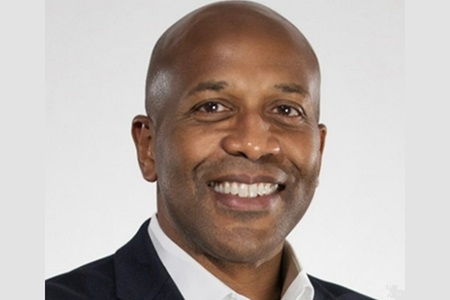 LeoLabs has named Tony Frazier as its new Chief Executive Officer (CEO). Frazier’s appointment signals LeoLabs’ strategic move to scale and become a crucial partner for combined military space operations and next-generation space safety systems.
LeoLabs has named Tony Frazier as its new Chief Executive Officer (CEO). Frazier’s appointment signals LeoLabs’ strategic move to scale and become a crucial partner for combined military space operations and next-generation space safety systems.
With a wealth of experience at the intersection of commercial space and national security, Frazier is poised to accelerate LeoLabs’ growth and cement its position as an industry leader. Previously serving as the Executive Vice President and General Manager of Public Sector Earth Intelligence at Maxar Technologies, Frazier led a $1bn business supporting missions across the US Government and over 60 international customers. His track record includes winning billions of dollars in new contract awards and incubating two new businesses scaled above $100m during his tenure at Maxar, GeoEye, and DigitalGlobe.
Speaking about the new role, Tony Frazier said: “After my experience at Maxar, I was looking for a company bringing commercial innovation to a critical national security mission. LeoLabs is delivering incredible capabilities in the emerging markets of space situational awareness and space domain awareness. LeoLabs was the first company to detect a secondary object released by a Russian satellite in November and persistently tracked China’s spaceplane for over 200 days between 2022 and 2023, detecting several manoeuvres, deployments, and docking activities.
“At Maxar, we leveraged the unique capabilities of our constellation, advances in computing, and geospatial analytics expertise to become the industry leader in Earth Intelligence. LeoLabs has built the right capabilities at the right time to become a critical mission partner for US, allied, and commercial space operators. I’m excited to join LeoLabs as CEO to build on its market momentum and scale its growth.”
The exponential growth of satellites in Low Earth Orbit, from approximately 2,500 in 2020 to potentially exceeding 12,000 by the end of 2024 and upwards of 70,000 by 2030, underscores the critical need for advanced safety and security solutions in space. LeoLabs, under the leadership of co-founder Dan Ceperley, has been at the forefront of addressing this challenge since its inception in 2016.
As LeoLabs’ CEO, Dan Ceperley led the development of the company’s proprietary radar technology, expanding its network globally to include 10 radars in under six years. LeoLabs built the world’s largest commercially owned catalogue of objects and activities in Low Earth Orbit and developed the fastest and most comprehensive data analytics platform for space operations under Ceperley’s guidance. In his new role as Chief Operations Officer, Ceperley will continue to lead LeoLabs’ engineering and mission operations, ensuring continuity and innovation within the company.
Dan added: “One of my proudest accomplishments is to see the technology we developed at LeoLabs used to impact customer missions. The number of satellites and space threats is growing at an unprecedented rate. Tony is going to take the great capabilities and customer relationships we pioneered and scale them to become an indispensable source of information for the global space industry. I’m thrilled to get back to my engineering roots and support him by delivering the technology that will power this transition. We have new sensor hardware in the works, new AI-powered analytics, software integrations, and cutting-edge R&D that will make 2024 an exciting year.”
LeoLabs has experienced significant momentum, securing contracts with the US Space Force, supporting international allies in military space operations, and providing a commercial foundation for the U.S. Department of Commerce’s civil space traffic coordination system. The appointment of Tony Frazier as CEO reflects LeoLabs’ commitment to driving innovation and excellence in the rapidly evolving space industry.
LeoLabs Board Chairman Manish Kothari stated: “It is terrific to see how Dan and the LeoLabs team have taken a nascent technology developed at SRI under funding from the US Department of Defense and the National Science Foundation and grown it from a prototype to a product lockstep with the growth of the commercial space business. The Board and I are grateful for Dan’s contributions and are excited for what is to come under Tony’s leadership.”












Add Comment